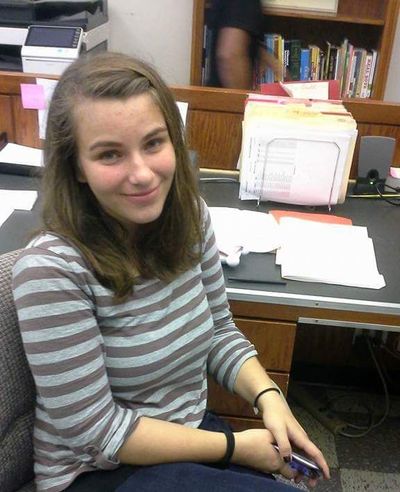The day that Gabe told me I had been approved to blog for Misfits is also the day he told me it would be cool if I could post my first blog by the end of the month. As I am in the midst of a two-month local missions program, I figured I had better get on that. So I set about praying, considering what I should say – specifically, what does God have to say to the Misfits?
Like in most things, I had an idea of what to write about, but it took some mental groping around in the dark to figure out what God was saying. But eventually, its form became clear: “Tell them about Elkanah and Hannah.”
But in order for me to tell you about Elkanah and Hannah, I have to start by telling you about Jacob and Rachel.
It’s a story a lot of us have heard before. Jacob is a man set apart by God to lead his people. Jacob has two wives. The first wife, Leah, has borne him many children, but it is the second wife, Rachel, the barren one, that Jacob loves. In their day (and still in ours), barrenness was considered the result of sin or not finding favor with God. So Leah, who was jealous of Rachel’s favor with Jacob, would provoke Rachel with insults about her barrenness. Without bearing a child, Rachel would never experience the fullness of love, honor, and dignity that Leah enjoyed in their society. So what does Rachel do? In her distress she cries out to Jacob, “Give me children, or I shall die!”
This is a desperate cry of anguish to her husband. And how does he respond to her?
“Jacob’s anger was kindled against Rachel, and he said, ‘Am I in the place of God, who has withheld from you the fruit of the womb?'”
From that moment, Jacob and Rachel’s relationship disintegrates. Rachel forces her husband to sleep with her maidservant in order to produce a child in her place. When that doesn’t fill the void, she uses the right to sleep with Jacob as a bartering chip to buy fertility drugs from Leah. Only after Leah has borne Jacob three more children does God grant Rachel’s petition and give her a son. And while Rachel does praise God for taking away her shame, her thankfulness is short-lived, and she names her son Joseph, a name which means, “May he add.”
This is a really sad story. It’s another link in the chain of stories about the patriarchs of our faith failing to trust God and seek his face in the midst of their need. It’s a story of anguish and frustration, anger and fractured relationships, and gaping spiritual voids that are never satisfied.
But God doesn’t leave us alone with sad stories. The Bible often employs parallel narratives in order to highlight God’s gracious innovation which breaks the destructive cycles of human sin and suffering.
So now we get to talk about Elkanah and Hannah. This story starts out very similarly to Jacob and Rachel. Elkanah was a Levite, a man set apart by God to lead his people. Elkanah also had two wives. His first wife, Peninnah, had borne him many children, but it was his second wife, Hannah, the barren one, that Elkanah loved. Peninnah was also very cruel to Hannah and tormented her because of her barrenness. But this is where the story starts to change.
Hannah doesn’t go to Elkanah in her desperation; he comes to her. He gives this tender response to his wife: “Hannah, why do you weep? And why do you not eat? And why is your heart sad? Am I not more to you than ten sons?”
Elkanah is not a vain optimist who insists Hannah’s wish will come true. He’s not quick to anger nor does he insinuate that God has rejected Hannah. He approaches her woundedness with understanding and compassion. He tries his best to comfort her.
But the innovation does not stop there. Instead of giving into her insecurities, instead of dehumanizing her husband, instead of seeking earthly ways of solving her problem, Hannah goes to the LORD and petitions him for a son, a son who she will gladly devote to his service. And then, knowing the LORD has heard her request, “The woman went her way and ate, and her face was no longer sad.”
In due time, the LORD gave Hannah a son. She named him Samuel, for she said, “I have asked for him from the LORD.”
Life is full of anguish and frustration, anger and fractured relationships, and sometimes it feels like our spiritual voids will never be satisfied. If you are experiencing the extents of brokenness, confusion, and desperation, if you are increasingly dissatisfied with the formulaic and burdensome answers the church, the world, or your closest friends give you, if you are crying out to God for answers, take heart. God’s anger will not be kindled toward the humble heart seeking understanding, nor the weary soul asking for healing, equity, or deliverance. He is the husband who wants to comfort you, to respond with understanding and compassion to your pain, your questions, and your desires. Keep petitioning him. Keep trusting him. Keep waiting for his loving innovation to break in.
